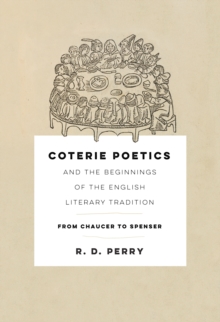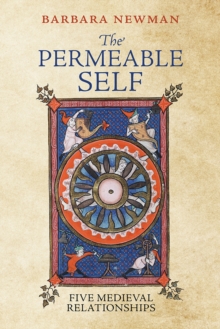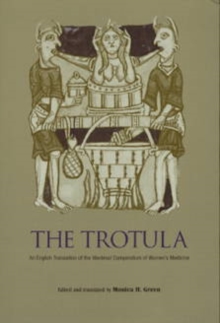
Gender and Jewish Difference from Paul to Shakespeare Hardback
by Lisa Lampert
Part of the The Middle Ages Series series
Hardback
Description
Although representations of medieval Christians and Christianity are rarely subject to the same scholarly scrutiny as those of Jews and Judaism, "the Christian" is as constructed a term, category, and identity as "the Jew." Medieval Christian authors created complex notions of Christian identity through strategic use of representations of Others: idealized Jewish patriarchs or demonized contemporary Jews; Woman represented as either virgin or whore.
In Western thought, the Christian was figured as spiritual and masculine, defined in opposition to the carnal, feminine, and Jewish. Women and Jews are not simply the Other for the Christian exegetical tradition, however; they also represent sources of origin, as one cannot conceive of men without women or of Christianity without Judaism.
The bifurcated representations of Woman and Jew found in the literature of the Middle Ages and beyond reflect the uneasy figurations of women and Jews as both insiders and outsiders to Christian society. Gender and Jewish Difference from Paul to Shakespeare provides the first extended examination of the linkages of gender and Jewish difference in late medieval and early modern English literature.
Focusing on representations of Jews and women in Chaucer's Canterbury Tales, selections from medieval drama, and Shakespeare's Merchant of Venice, Lampert explores the ways in which medieval and early modern authors used strategies of opposition to-and identification with-figures of Jews and women to create individual and collective Christian identities.
This book shows not only how these questions are interrelated in the texts of medieval and early modern England but how they reveal the distinct yet similarly paradoxical places held by Woman and Jew within a longer tradition of Western thought that extends to the present day.
Information
-
Available to Order - This title is available to order, with delivery expected within 2 weeks
- Format:Hardback
- Pages:288 pages
- Publisher:University of Pennsylvania Press
- Publication Date:05/03/2004
- Category:
- ISBN:9780812237757
Information
-
Available to Order - This title is available to order, with delivery expected within 2 weeks
- Format:Hardback
- Pages:288 pages
- Publisher:University of Pennsylvania Press
- Publication Date:05/03/2004
- Category:
- ISBN:9780812237757










